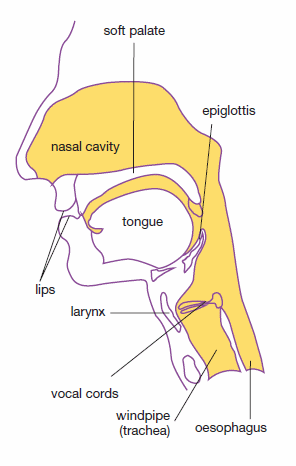Swallowing
Difficulty swallowing (also known as dysphagia) is a possible symptom of multiple sclerosis. Support is available to help manage the effects of swallowing problems.
Problems with how you speak can be a symptom of multiple sclerosis for some people. MS speech disorders include slurring of speech and problems with the quality of your voice (dysarthria) and difficulty remembering specific words (dysphasia).
A speech and language therapist may be involved in helping you cope with speech problems.
Speech problems may happen at any stage of MS. For most people they are relatively mild and manageable. Symptoms may be worse during a relapse or in the more advanced stages of the condition. However, the impact of any changes in speech will be very individual. For example, a mild difficulty could have a large effect on you at work. Or a larger change might not have so much impact on you if you tend to speak with fewer people who know you well.
The most common changes in speech and communication in MS include:
People with more advanced MS may find that the rhythm and intonation of their speech are disrupted, perhaps causing them to sound ‘robotic’. This is sometimes referred to as scanning speech.
Speech disorders in multiple sclerosis can be caused by weakness or lack of coordination in the muscles used in speaking. This is called dysarthria. Speech problems can also result from weakness of the chest muscles, affecting breathing and the production of breath to speak with.
Speaking involves several parts of the body that need to work together. This includes the lungs, diaphragm, vocal cords, lips, tongue and nasal cavity.

Damage caused by MS to the areas of the central nervous system that control any of these elements can affect your speech. Similarly, fatigue or weakness can affect any part of the process.
There are more ideas for coping with the 'tip of the tongue' problem on our Staying Smart webpages.
Treatment of speech disorders in MS often involves a speech and language therapist or a physiotherapist.
Depending on the nature of your problems, the speech and language therapist may:
A physiotherapist might work with you to strengthen your chest muscles to improve your breath control and increase your lung volume. They may suggest the use of a cough assist device to do this. This device may also help to clear your lungs of persistent secretions and reduce the risk of chest infection.